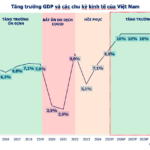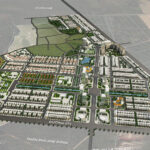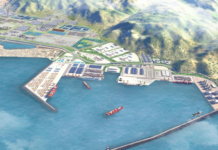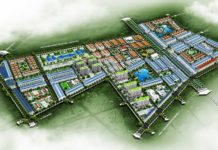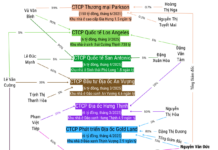U.S. Real Estate Market in Decline
During the COVID-19 pandemic (2020–2022), housing prices in several countries, including the U.S., Canada, Australia, and New Zealand, surged dramatically. This was partly due to ultra-low interest rates aimed at supporting economies, which made mortgage borrowing costs historically low.
For instance, in the U.S., reports from the Federal Reserve and the Case-Shiller Home Price Index revealed that between 2020 and 2022, home prices skyrocketed by over 45%, far exceeding the historical average of 5–6% annually. This marked one of the most significant increases in the nation’s real estate history.
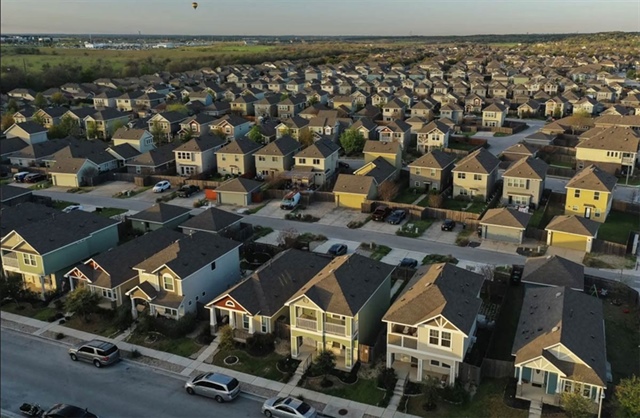
U.S. real estate investment returns are declining due to high interest rates and weak demand. |
However, post-pandemic, the real estate market has shifted. In the U.S., from late 2022 to 2024, housing price growth has stalled or even declined in states like California, Washington, and Texas. Mortgage rates surged from 3% to over 7%, doubling ownership costs.
According to 2024 data from the U.S. Bureau of Labor Statistics (BLS) and the Case-Shiller Index, home prices in major states such as California, Washington, and Texas have dropped by 5–10% from their 2022 peak. Cities like San Francisco, Seattle, and Austin have seen even steeper declines, as high borrowing costs have led to a sharp drop in transactions.
The July 2025 report from S&P Dow Jones Indices indicates that U.S. home prices have plateaued, reflecting the market’s cooldown after its pandemic boom.
The national home price index rose just 1.7% year-over-year, down from 1.9% in June and significantly lower than the double-digit growth seen during the pandemic. This is the weakest increase in nearly a decade.
Regional trends have also reversed sharply. Once-hot cities like Tampa (–2.8%), Phoenix (–0.9%), Miami (–1.3%), and San Francisco (–1.9%) have seen price declines, while more stable economies like Chicago and Cleveland have experienced only modest growth.
Vietnamese Expatriate Capital Flows Double into Vietnam
Tín Nguyễn, a global real estate investor, notes: “Previously, rental properties in the U.S. could yield 5–6% annually, while flipping properties could generate 15–20%. Now, these returns have fallen to about one-third due to high interest rates and weak demand.”
He observes that capital is shifting to emerging Asian markets like Vietnam, the Philippines, and Indonesia, where growth potential remains high.
In reality, foreign direct investment (FDI) in Vietnam’s real estate sector is surging, highlighting its appeal to international investors. According to the Foreign Investment Agency’s 2025 report, FDI in this sector reached $5.1 billion in the first half of 2025, double the previous year’s figure.
Alongside FDI, Vietnamese expatriates are increasingly investing in domestic housing. Approximately 25% of remittances to Vietnam are directed into real estate. For example, in 2024, remittances totaled $16 billion, with about $4 billion invested in real estate.
Đỗ Anh Việt, a real estate agent in Ho Chi Minh City, notes that Vietnamese expatriates are becoming more active in the market, driving demand for high-standard projects in major cities like Ho Chi Minh City, Hanoi, and Da Nang.
Việt explains that while central Ho Chi Minh City features high-priced projects with limited space and amenities due to scarce land, emerging areas like Thu Thiem offer advantages such as well-planned layouts, low density, and open living spaces. These factors better align with expatriates’ preferences.
He adds that projects meeting criteria for planning, amenities, and construction quality typically achieve strong absorption rates and stable secondary market prices. For instance, The Privé, a luxury project by Dat Xanh Group in Thu Thiem, is attracting significant interest from this demographic.
Phạm Thị Miền, Vice Director of the Real Estate Market Research Institute, states: “Remittances flowing into real estate remain consistent and are gradually increasing, with each quarter surpassing the previous one.”
Analyzing this trend, Miền cites several factors driving remittances into real estate.
First, property ownership in Vietnam has become clearer and more accessible due to new regulations. Vietnamese expatriates now enjoy the same ownership and transaction rights as domestic citizens, boosting their confidence in investing directly in Vietnamese real estate.

Vietnamese expatriates are increasingly interested in luxury housing projects that meet three key criteria: prime location, transparent legal frameworks, and sustainable profit potential. |
Additionally, while many global economies face downturns, Vietnam maintains stable growth, showcasing its resilience. “This strengthens expatriates’ confidence in the domestic market’s long-term sustainability and profit potential,” Miền adds.
Lastly, political stability remains a critical factor. Despite global turmoil, Vietnam is recognized for its high stability, fostering a favorable investment environment, especially in real estate, which requires long-term trust and vision.
Moreover, many expatriates invest in Vietnamese real estate to diversify into emerging markets, seek higher returns, or simply out of nostalgia, wishing to return to their roots after years abroad.
According to Miền, expatriates from developed countries like the U.S., Europe, and Canada typically invest in high-end properties, both for personal use and long-term rental income.
Hạnh Nguyên
– 08:46 24/10/2025
Why Are Property Prices Still Rising Despite Increased Supply?
The housing supply has improved following the resolution of legal hurdles for numerous projects, yet property prices continue to rise. Dr. Lê Xuân Nghĩa asserts that the root of the issue lies not in speculation, but in the acute shortage of actual housing supply, particularly in the price segment affordable to the general population.
Lumière Midtown: Sustainable Living at the Heart of Ho Chi Minh City
Lumière Midtown stands as the quintessential choice for elite living, offering not just a home but a lifestyle defined by unparalleled growth potential. Strategically located, this project seamlessly integrates prime positioning, cutting-edge infrastructure, world-class amenities, and the exceptional craftsmanship of Masterise Homes, setting a new benchmark for luxury and value appreciation.
Taseco Land and HNG Holdings Joint Venture Invests in Billion-Dollar Urban Development Project in Northern Vietnam’s Industrial Hub
HNG Holdings and Taseco Land have joined forces to develop a new urban area project in Huong Mac and Phu Khe wards, located in Bac Ninh. This collaboration promises to create a modern and vibrant community, blending innovative design with sustainable living solutions.


